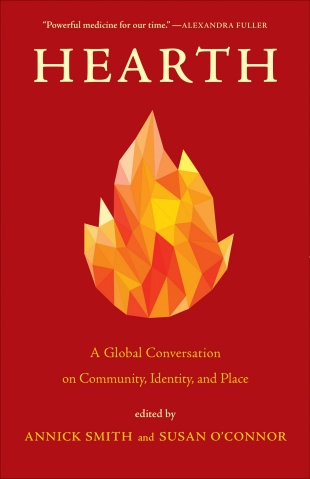"Life on the Internet means two opposing realities. One, the bedrock solipsism of the experience. This is for you, and you only. You follow your own series of clicks down your own warren of trails, a path no one else will ever follow exactly. You’ve shaped your own feeds to reflect your own beliefs and persuasions, and hence they now reflect that back at you. Even the TV was a river with relatively few channels — three, in my youth. There was unavoidable sharing and overlap. But the Internet is a delta with endless braided rivulets and streams. You are by yourself.
"And yet you are also never alone, never unoccupied. The clicking never ceases — I follow nine hundred people on Twitter, which means that never more than a few seconds elapses before some new idea pops up on the screen. One never reaches Facebook only to find a notice saying 'nothing interesting has happened.' There’s always more. And our brains seem to crave that endless flow of novelty — not looking at the unread e-mail in your inbox is at least as hard as not eating from the open box of chocolates in the pantry. Stimulus, reward, dopamine, something something — that’s how it seems to work.
"My fear is that we’re losing — that I’m losing — the two crucial things the hearth, or the campfire before it, provided. The first is commonality, the shared community built by the gathering of several souls in the same place. Think about the creation stories passed down by millennia of oral repetition. Or think of the gossip exchanged nightly. Both served to ground us in particular communities, instead of the literal nowhere we now spend our time. There’s still plenty of gossip, but it’s about worlds we don’t actually inhabit. We are truly by ourselves, and for a socially evolved primate that is a strange experience; it wasn’t that many generations ago that we were sitting on the warm savanna grass and picking lice out of each other’s fur. The closest we’ve got now is the moment when something goes viral, and for a moment there’s a connection between us, until the next click kills it.
"But at the same time, we’re never alone. At night, when the fire dwindled, the talk did too. People drifted toward sleep, or into their thoughts. Throughout human history, one of the characteristic experiences of Homo sapiens has been to stare into the dying embers, one’s mind wandering. But that, I think, rarely happens anymore. There’s something to fill every moment, something new and different even if it’s essentially the same.
"All this is a way of saying: thinking consciously about the hearth — about those places and activities that center us in community and also in our own minds — is now crucial in a way it’s never been before. I miss, a great deal, those experiences that have always marked our lives, and there are times when I feel as if I’m living inside an experiment, an experiment going wrong. That’s why this book is important. If we’re to keep the chain of deep human contact intact, we need to actively seek out those experiences. For most of human history, rattling on about community and about focus would have been like having a considered opinion on breathing, or offering advice on bipedal locomotion. But all of a sudden our default is in the opposite direction. The Internet, whatever its other vices and virtues, is an anti-hearth, and it is winning. Where our time is spent, there also is our heart."
